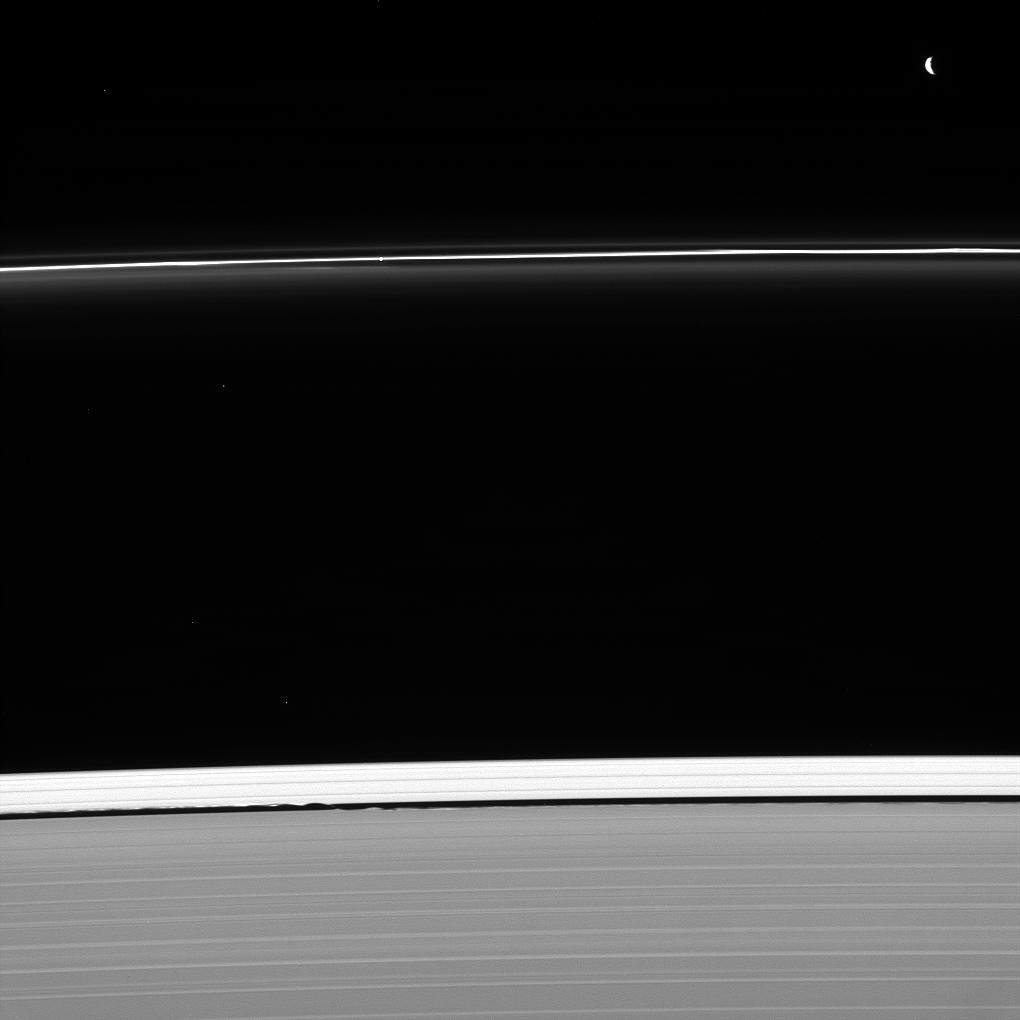The Shapers

| PIA Number | PIA18298 |
|---|---|
| Language |
|
Two masters of their craft are caught at work shaping Saturn's rings. Pandora (upper right) sculpts the F ring, as does nearby Prometheus (not seen in this image). Meanwhile, Daphnis is busy holding open the Keeler gap (bottom center), its presence revealed here by the waves it raises on the gap's edge. The faint moon is located where the inner and outer waves appear to meet. Also captured in this image, shining through the F ring above the image center, is a single star.
Although gravity is by its very nature an attractive force, moons can interact with ring particles in such a way that they effectively push ring particles away from themselves. Ring particles experience tiny gravitational "kicks" from these moons and subsequently collide with other ring particles, losing orbital momentum. The net effect is for moons like Pandora (50 miles or 81 kilometers across) and Daphnis (5 miles or 8 kilometers across) to push ring edges away from themselves. The Keeler gap is the result of just such an interaction.
This view looks toward the unilluminated side of the rings from about 50 degrees below the ringplane. The image was taken in visible light with the Cassini spacecraft narrow-angle camera on Jan. 30, 2013.
The Cassini-Huygens mission is a cooperative project of NASA, the European Space Agency and the Italian Space Agency. The Jet Propulsion Laboratory, a division of the California Institute of Technology in Pasadena, manages the mission for NASA's Science Mission Directorate, Washington, D.C. The Cassini orbiter and its two onboard cameras were designed, developed and assembled at JPL. The imaging operations center is based at the Space Science Institute in Boulder, Colo.
For more information about the Cassini-Huygens mission visit http://saturn.jpl.nasa.gov or http://www.nasa.gov/cassini . The Cassini imaging team homepage is at http://ciclops.org .
Credit: NASA/JPL-Caltech/Space Science Institute
